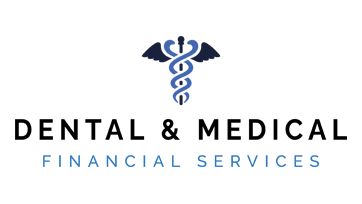
Huge Tax-Saving Incentives for High-Earning Parents
There is a growing number of doctors and dentists in the UK who have found themselves navigating a treacherous tax landscape thanks to recent moves by the government. Particularly contentious are the so-called ‘tax cliffs’ that occur at £100,000 and £200,000 income thresholds.
These cliffs create steep drops in disposable income and have led many parents and healthcare professionals to re-evaluate their financial strategies—especially as they consider committing additional hours to alleviate increasing waiting lists.
Dental & Medical Financial Services have been assisting doctors with their financial planning for over 30 years. To understand the controversial tax cliff edges and how they might affect you as a parent, read on.
This does not constitute advice and advice should be sought in all instances before acting on it. The Financial Conduct Authority does not regulate tax advice. Tax treatment depends on the individual circumstances of each client and may be subject to change in future.
The recent tax changes pose a complex challenge for doctors and dentists or anyone who is a high earner, particularly in light of the 100K and 200K tax cliff edges. Professionals must understand the implications these tax rules have. It’s not just your finances that are impacted, but potentially your professional commitments as well.
The £100K Tax Cliff Edge
For many healthcare professionals, the £100,000 threshold represents more than just a number—it now signifies a critical junction where financial relief may be quickly eroded despite a significant income. A single adult earning £101,000 will lose eligibility for free childcare support, which can drastically reduce their disposable income. In fact, a parent with a one-year-old and a two-year-old in childcare could face a loss of up to £14,500 in disposable income simply by surpassing this income threshold.
A stark contrast arises when comparing professionals slightly below this threshold. A doctor earning £99,999 may enjoy all available benefits, while a colleague just breaking into six figures can find themselves thousands of pounds worse off. This deeply inequitable situation is driving some to consider reducing their working hours or engaging in salary sacrifice schemes to maintain their eligibility for these services, ultimately leading to the unfortunate phenomenon of “paying to work.”
One can imagine that many senior doctors, eager to tackle mounting waiting lists in the NHS, would be incentivised to work additional shifts, yet these punitive tax rules may restrict their ability or willingness to do so. This dilemma encapsulates the troubling reality faced by healthcare professionals in the UK today.
The £200K Tax Cliff Edge
This precarious situation only intensifies for those whose income crosses the £200,000 mark, often known as “super earners” among doctors and dentists. The tax implications at this level are not trivial; earners above this threshold are subjected to an increased tax rate of 60%. For those in this category, strategic financial planning becomes even more critical, as one’s dedication to healthcare can lead to significantly lower take-home pay.
This income disparity can breed frustration among professionals who feel disincentivised from extending their efforts for the greater good of patient care. Much like the £100K cliff, the £200K threshold presents a stark divide. It becomes increasingly vital for professionals to engage in comprehensive tax and financial planning to ensure they aren’t penalised for their contributions to the healthcare system.
Financial Strategies for Doctors and Dentists
At this point, a robust financial strategy is imperative for those affected by these tax cliffs. To mitigate the adverse effects, engaging with expert advisors who understand the nuances of tax rules specific to doctors and dentists can yield important insights into maximising your take-home income while remaining tax compliant.
For instance, the Medifintech report on annual allowances can provide tailored strategies designed for those navigating these challenges. As professionals committed to improving healthcare outcomes for their patients, the importance of financial wellness cannot be overlooked.
If you are a healthcare provider facing uncertainty in your financial planning due to these tax cliffs, consider reaching out to Dental & Medical Financial Service for customised tax planning strategies that could make a significant difference. Contact Dental & Medical Financial Services today to get started saving.

Dental & Medical Financial Services
Dental & Medical Financial Services have over 30 years of experience in building and protecting the wealth of medical professionals.
Our expertise covers:
- Financial Planning
- Mortgages & Finance
- Wealth Protection
- Investments, SIPPS & ISAs
- NHS Pension Planning
- Business Financial Protection
- Wills, IHT & Estate Planning
- Tax Planning
- Limited Company Investments
Contact Details
IFA Principal
Darren Scott-Guinness
01403 780 771
